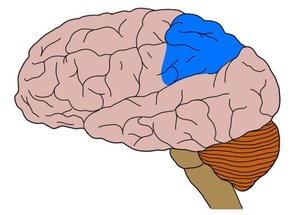Your Brain and Spirituality.
 |
| Stained glass brain (stock image). Credit: © Katharine / Fotolia
Scientists have identified a possible neurobiological home
for the spiritual experience -- the sense of connection to
something greater than oneself.
|
I would find it strange for someone to deny ever having a spiritual experience. We all have them. What is different from person to person is what we attribute the experience to.
The brain is an amazing organ, our sole interpreter of the greater world around us. However, whether you believe that spirituality emanates from God or hold the position that our apparently three dimensional reality is actually a two dimensional projection from the nearest black hole, this is how you and I experience the spiritual.
* * * * *
Where the brain processes spiritual experiences
Spiritual experiences can be religious in nature or not, such as feeling
of oneness in nature or the absence of self during sporting events.
Yale scientists have identified a possible neurobiological home for the spiritual experience -- the sense of connection to something greater than oneself.
 |
| Source: Neuroscientifically Challenged |
"Spiritual experiences are robust states that may have profound impacts on people's lives," said Marc Potenza, professor of psychiatry, of the Yale Child Study Center, and of neuroscience. "Understanding the neural bases of spiritual experiences may help us better understand their roles in resilience and recovery from mental health and addictive disorders."
Spiritual experiences can be religious in nature or not, such as feeling of oneness in nature or the absence of self during sporting events.
Researchers at Yale and the Spirituality Mind Body Institute at Columbia University interviewed 27 young adults to gather information about past stressful and relaxing experiences as well as their spiritual experiences. The subjects then underwent fMRI scans while listening for the first time to recordings based on their personalized experiences. While individual spiritual experiences differed, researchers noted similar patterns of activity in the parietal cortex as the subjects imagined experiencing the events in the recordings.
Potenza stressed other brain areas are probably also involved in formation of spiritual experiences. The method can help future researchers study spiritual experience and its impact on mental health, he said.
Story Source: Materials provided by Yale University. Lisa Miller, Iris M Balodis, Clayton H McClintock, Jiansong Xu, Cheryl M Lacadie, Rajita Sinha, Marc N Potenza. Neural Correlates of Personalized Spiritual Experiences. Cerebral Cortex, 2018.
Comments
Post a Comment